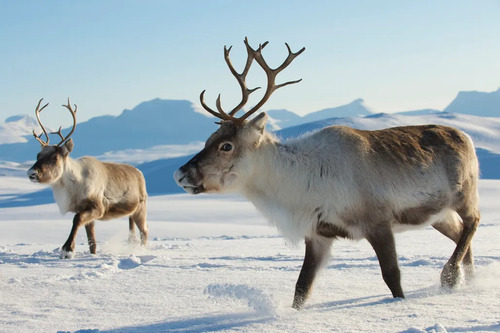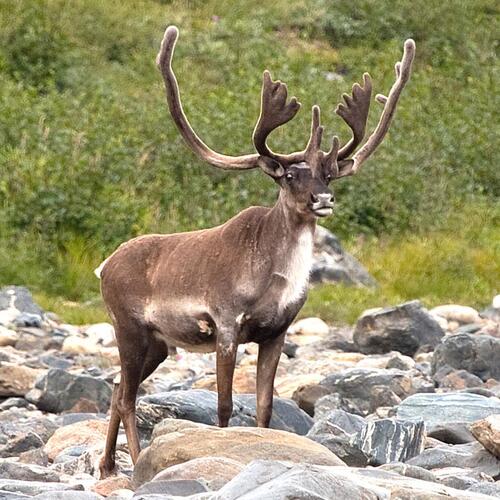Reindeer (Rangifer tarandus) and caribou are two names for the same species, but they refer to different populations based on geographical location and domestication status. This article explores the differences and similarities between reindeer and caribou, highlighting their ecological roles, conservation status, and dietary uses.

Reindeer are typically associated with northern Eurasia, where they are often domesticated by indigenous peoples. Caribou, on the other hand, refers to wild populations found primarily in North America. Both are fascinating creatures adapted to life in cold, harsh environments.
| Feature | Reindeer | Caribou |
|---|---|---|
| Geographical Range | Northern Eurasia (Scandinavia, Russia) | North America (Canada, Alaska) |
| Domestication Status | Often domesticated for herding | Generally wild, but some semi-domesticated |
| Physical Characteristics | Generally smaller, with paler coats | Larger, with darker coats and more robust bodies |
| Antlers | Both sexes grow antlers; reindeer antlers can be larger | Males grow antlers; females grow them too, but smaller |
| Behavior | More docile due to domestication | Wilder, with migratory patterns |
| Conservation Status | Least Concern (domesticated populations) | Vulnerable (some populations declining) |
| Diet | Moss, lichens, grasses, and shrubs | Moss, lichens, and a variety of tundra vegetation |
| Cultural Significance | Integral to Sami and other indigenous cultures | Important to Native American traditions |
Reindeer are generally classified as "Least Concern" because their domesticated populations are stable and supported by human care. However, wild caribou populations face significant threats, including habitat loss, climate change, and hunting pressures. Some caribou herds are listed as "Vulnerable" or even "Endangered," particularly in regions where human activities have encroached upon their migration routes.

Reindeer are traditionally used for various purposes by indigenous peoples. They are a source of meat, clothing, and materials for tools and shelter. The meat is rich in nutrients and has been a staple in the diets of many northern communities.
Caribou are also hunted for food, providing valuable nutrition to local populations. In some areas, caribou meat is considered a delicacy and is often featured in traditional dishes.
Reindeer and caribou, while fundamentally the same species, showcase fascinating adaptations to their respective environments and human interactions. Understanding the differences between them not only enriches our knowledge of biodiversity but also highlights the importance of conservation efforts for wild populations. By protecting these remarkable animals, we ensure that future generations can continue to appreciate their beauty and significance in northern ecosystems.
We created this article in conjunction with AI technology, then made sure it was fact-checked and edited by a Animals Top editor.